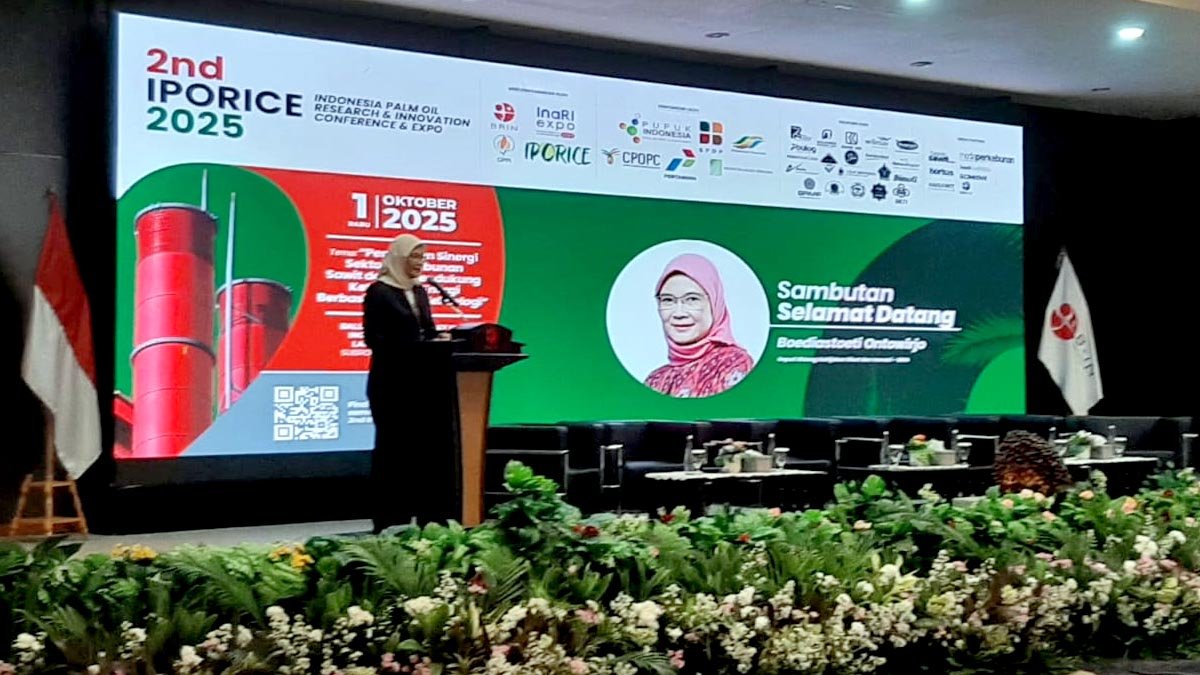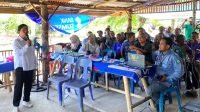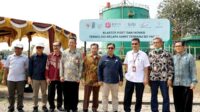PALMOILMAGAZINE, JAKARTA — The National Research and Innovation Agency (BRIN) underscored the critical role of research and innovation in advancing the strategic contribution of palm oil to Indonesia’s national energy security. The message was conveyed by BRIN Chairperson Laksana Tri Handoko, through Deputy for Research and Innovation Policy, Boediastoeti Ontowirjo, during the opening ceremony of the 2nd Indonesia Palm Oil Research & Innovation Conference and Expo (IPORICE), held from October 1–3, 2025.
In his address, Handoko expressed gratitude for the successful organization of the forum, which adopted the theme “Strengthening Synergy in the Palm Oil Sector to Support Energy Security Through Technological Innovation.” He noted that this theme aligns closely with Indonesia’s 2025–2029 national development priorities, particularly the agenda of bolstering energy resilience—one of President Prabowo Subianto’s key missions for achieving national energy independence.
“The national palm oil industry has made a significant contribution to energy security through the biodiesel mandate program. Since its inception under the Energy and Mineral Resources Ministerial Regulation No. 32 of 2008, this policy has evolved, and by 2021, Indonesia successfully achieved a 40% blending rate (B40). The program not only supports economic growth but also promotes social progress and environmental sustainability,” Handoko said during the conference, attended by Palmoilmagazine.com on Wednesday (Oct 1, 2025).
However, he reminded participants that global challenges remain—from sustainability concerns and international environmental pressures to the rapid disruptions of digital technology. For that reason, he emphasized that research and innovation are vital to maintaining the competitiveness of Indonesia’s palm oil industry.
Handoko cited several of BRIN’s achievements in bioenergy research, including the development of a metal-organic framework-based catalyst to convert palm oil into bioavtur—a breakthrough that earned international recognition through the UNESCO For Women in Science Award in 2024. BRIN is also developing advanced biodiesel optimization technology and exploring new-generation reactors to convert palm biomass into energy.
“These achievements are only possible through close collaboration with partners, including the Plantation Fund Management Agency (BPDP), which has supported research through grant schemes and also serves as a sponsor of this year’s IPORICE,” Handoko added.
He emphasized that IPORICE serves as a convergence platform between research, policy, and industry—science to science, science to policy, and science to society. This model, he said, is crucial for strengthening industry engagement while enhancing public understanding of how research and innovation contribute to national development.
“With the collective support of all stakeholders, I am confident that IPORICE can become a key momentum to accelerate the transformation toward sustainable palm-based energy and improve community welfare across the entire value chain,” Handoko concluded. (P2)





































